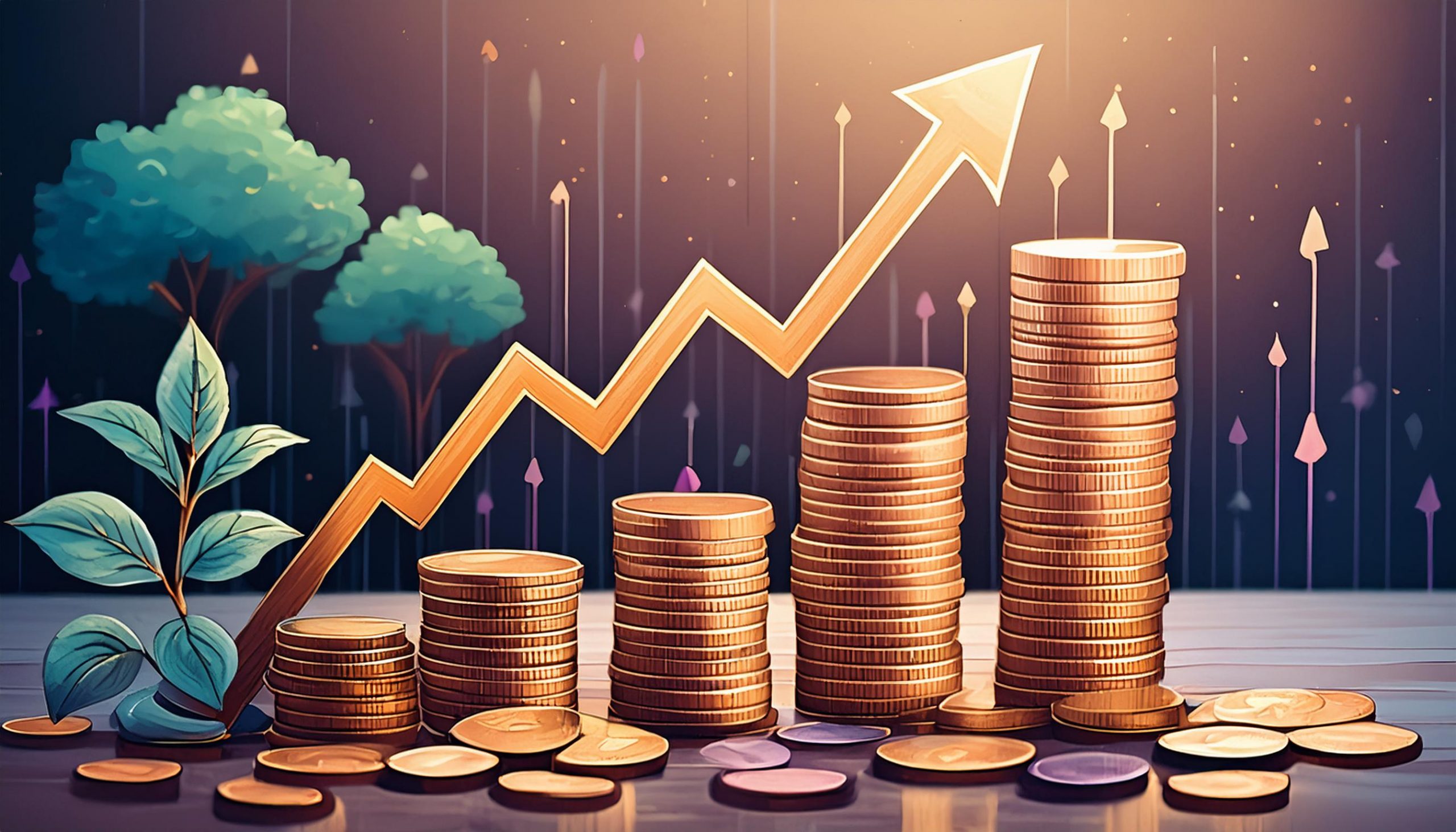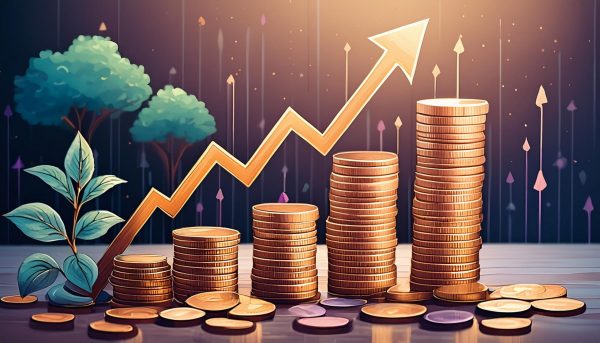If you’re an income-earning adult and you haven’t yet invested in something legitimate that yields returns for you over time, 2025 is the year you should begin to do so. It’s a good idea, even if you don’t have much to start with. Thanks to compound interest, your little investment will grow into something substantial, if you let it persist for long enough.
Read more about Finance
Perhaps you already know what interest is, but you’re not quite sure what compound interest is. We’ll break it all down for you here. In addition, we’ll explain how it works, and why it’s such a wonderful wealth-building engine. In the end, you should see it as a great reason to invest in decent asset classes.
What is Compound Interest?
Putting it simply, compound interest is the interest that you earn on interest.
For example, if you’ve invested ₦300,000 in a fixed-income asset that yields 10% interest annually, you’ll have ₦330,000 (that is, ₦300,000 plus 10% of ₦300,000) a full year after the initial investment. By the end of the second year, that’ll have gone up to ₦363,000 (that is, ₦330,000 plus 10% of ₦330,000).
The interest earned in the first year is ₦30,000. In the second year, you would also earn another ₦30,000, plus an extra ₦3,000. These additions continue compounding (hence the term ‘compound interest) for as long as you stay invested. And the additions get bigger with time too.
How is Compound Interest Calculated?
It’s fairly easy to calculate compound interest if you’re dealing with investments that last just a few years. But it becomes increasingly difficult for longer durations—unless you have a formula that allows you to just plug in the relevant numbers and obtain your answer pretty quickly.
Fortunately, such a formula does exist. It’s laid out below:
A=P (1+ r/n)nt
Where,
A=Final amount (initial investment or principal, plus total interest)
P=Initial investment or “principal”
r=Interest rate
n=Number of times interest is received per time period (e.g. per year)
t=Number of time periods (e.g. years)
Let’s use this formula for the same investment we mentioned earlier, to find out what it’ll be worth 10 years after the initial investment.
A=300,000(1+ (0.10/1))10
=300,000(2.594)
=778,200
So, at the end of 10 years, your initial investment of ₦300,000 would be worth ₦778,200.
Sign up for the Connect Nigeria daily newsletter
What Factors Determine the Size of Compounding Returns?
The results of compounding aren’t the same across every possible investment. Actual returns depend on a range of factors, including:
Time Frame
Other things held constant, you can expect total returns on investment to be greater in the longer term than in the short term. As we’ve already shown, it takes time to accumulate returns. The more time you have to do so, the more you’ll get.
Interest Rates
The higher the interest rate for your investment, the greater your returns will be. For example, let’s reconsider the previous example. If the interest rate on your ₦300,000 investment over 10 years was 20% (instead of 10% as we earlier assumed), your investment would be worth ₦1,857,600 at the end of that period. That’s more than two times what a 10% interest rate will give you.
Reinvestment
We haven’t mentioned this, but it’s really important if you want to achieve outsized gains from your investments. This is why you should consider topping up your investment regularly if this is possible. Let’s again reconsider our example of ₦300,000 invested for 10 years at 10% per annum. If you added ₦10,000 monthly to your investment throughout those 10 years, it’ll be worth about ₦2,776,700 at the end of that period.
How Long Will It Take for Your Investment to Double in Value?
There’s an easy way to tell how long it will take for the value of your investment to double. It’s called the Rule of 72. All you need to calculate this is the number 72 (hence the term) and your interest rate. To find out how long it will take to double the value of your investment, divide the number 72 by the rate of return (interest rate) of your investment. For example, if your interest rate is 10%, it would take you 7.2 years to double your investment (72 divided by 10). And if the interest rate was 20%, doubling would happen in just 3.6 years.
How Can You Take Advantage of Compound Interest?
You can make the most of compound interest by investing in legitimate assets that deliver higher growth rates. They could be equities (i.e. stocks and shares), Exchange Traded Funds (ETFs), mutual funds, or Real Estate Investment Trusts (REITs). Opportunities also exist with government and corporate bonds and high-yield savings accounts.
The good news is that you can access these investment opportunities quite easily. If you like to invest in equities (listed on the Nigerian or US stock markets), you can do so on apps like Bamboo and Chaka. You may find Cowrywise useful for mutual funds. There are also dollar-denominated real estate and fixed-income investments available on Risevest. These are just a few examples of registered investment platforms that you can use with just your smartphone.
Register to attend the CN Business Mixer
Final Words
Some have referred to compounding investment as “the eighth wonder of the world”. It’s not hard to see why. As you’ve learnt, it’s possible to start investing with relatively modest sums and reap returns several times larger than what you initially invested. For best results, pick assets that deliver significant returns, make periodic contributions to top up your investment, and stay invested for the long term.
Got a suggestion? Contact us: [email protected]


